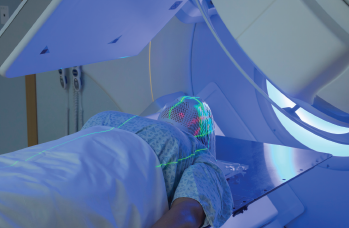The interaction between tobacco exposure and HPV infection in the context of OPSCC has significant implications for standard of care treatment regimens.
Analysis of Five-Year Recurrence Patterns in Sinonasal Cancer
Sinonasal cancer shows an 11.7% recurrence rate after a five-year disease- free period, but varies by tumor pathology.
BVFP Patients Achieve Bilateral Fold Movements with Selective Laryngeal Reinnervation
What is the extent of airway improvement and voice quality in patients with bilateral vocal fold paralysis (BVFP) who underwent selective laryngeal reinnervation surgery?
Radiation Exposure Alters Airway Deformability during Laryngoscopy
A look at the effect of therapeutic radiation exposure on airway volume, tissue deformation, and bony structure displacement in the setting of operative laryngoscopy.
BSS Should Be Considered in Differential Diagnosis
A look at the imaging characteristics and clinical outcomes of biphenotypic sinonasal sarcoma (BSS)?
Intraductal Botulinum Toxin Is Safe for Managing Salivary Disorders
The intraductal route of botulinum toxin delivery to salivary glands was without complication and was effective in two patients treated therapeutically.

Otolaryngologist’s Love of Running Helps Her Connect with Patients, Other Physicians
Ilaaf Darrat, MD, MBA, a pediatric otolaryngologist, explains how running has helped her medical career.

Lessons Learned about Clinical Data Registries
Otolaryngologists share what they learned about from their experience collecting clinical data surrounding cochlear implant care.

The Value of Clinical Registries in Otolaryngology

Is It Time to De-Escalate Radiation Therapy in Patients with HPV+ HNC?
Radiation therapy has a host of drawbacks, including long-term side effects and even treatment-related morbidity in some cases.
- « Previous Page
- 1
- …
- 120
- 121
- 122
- 123
- 124
- …
- 342
- Next Page »